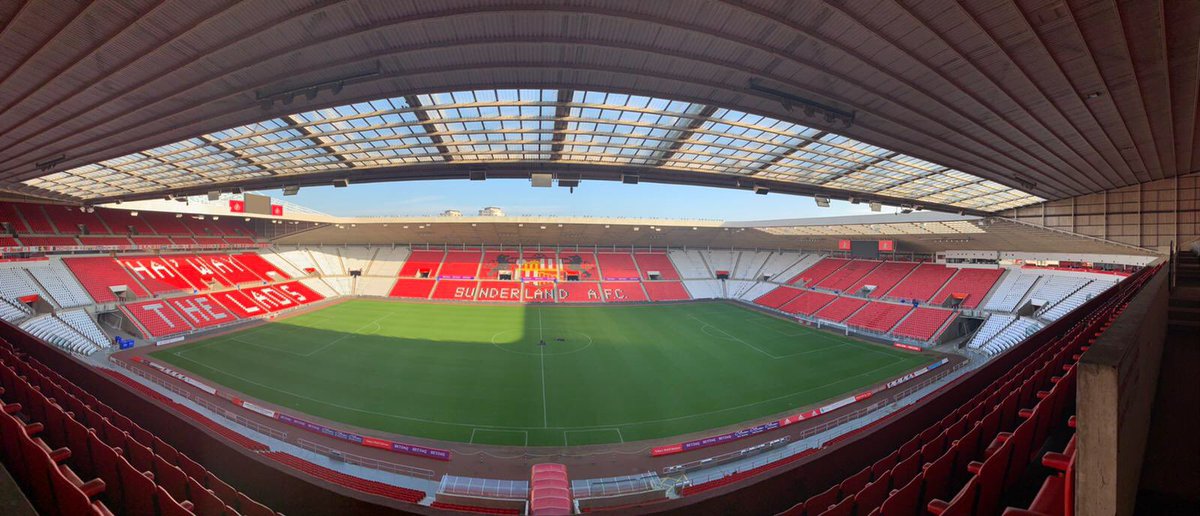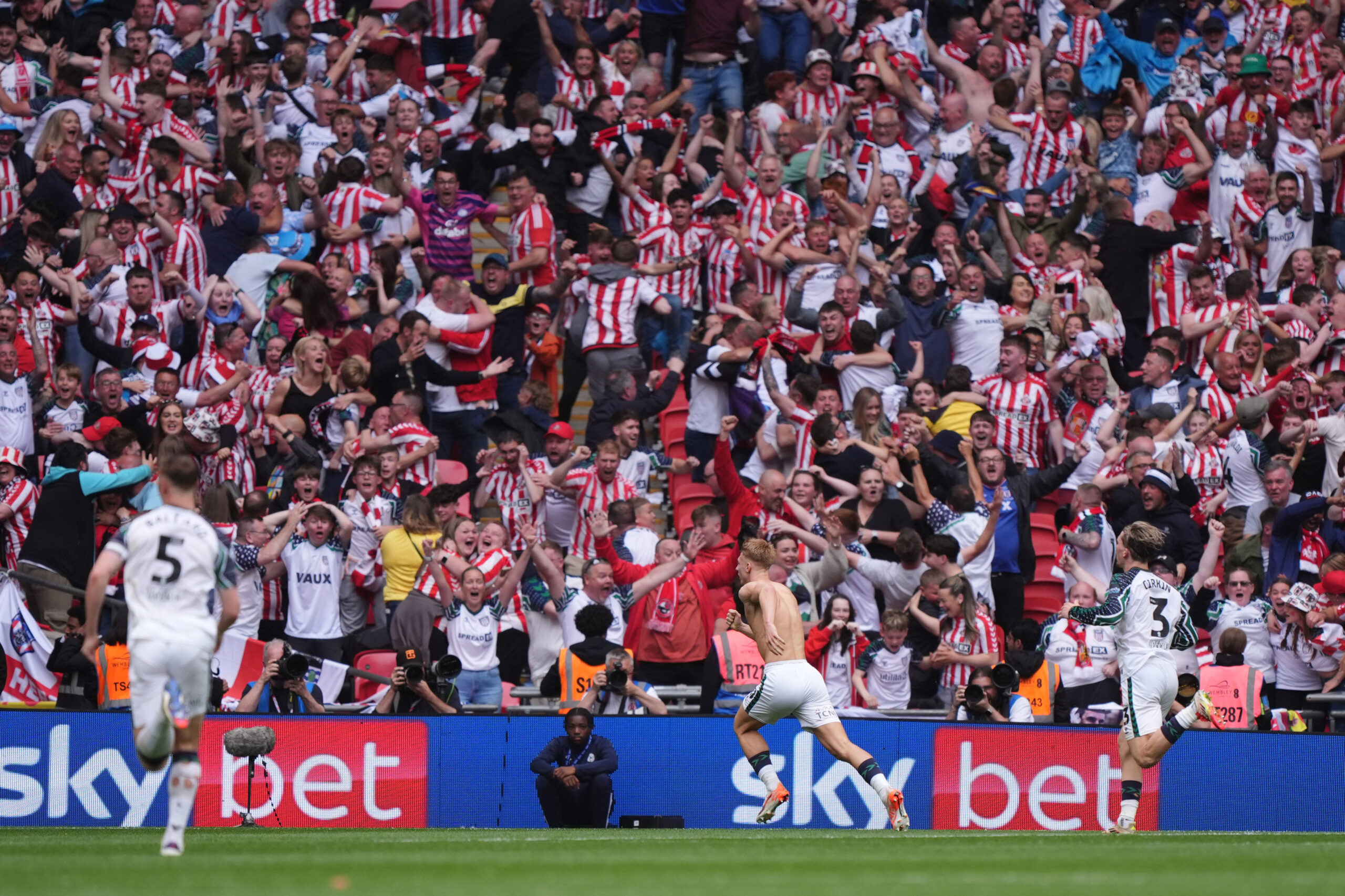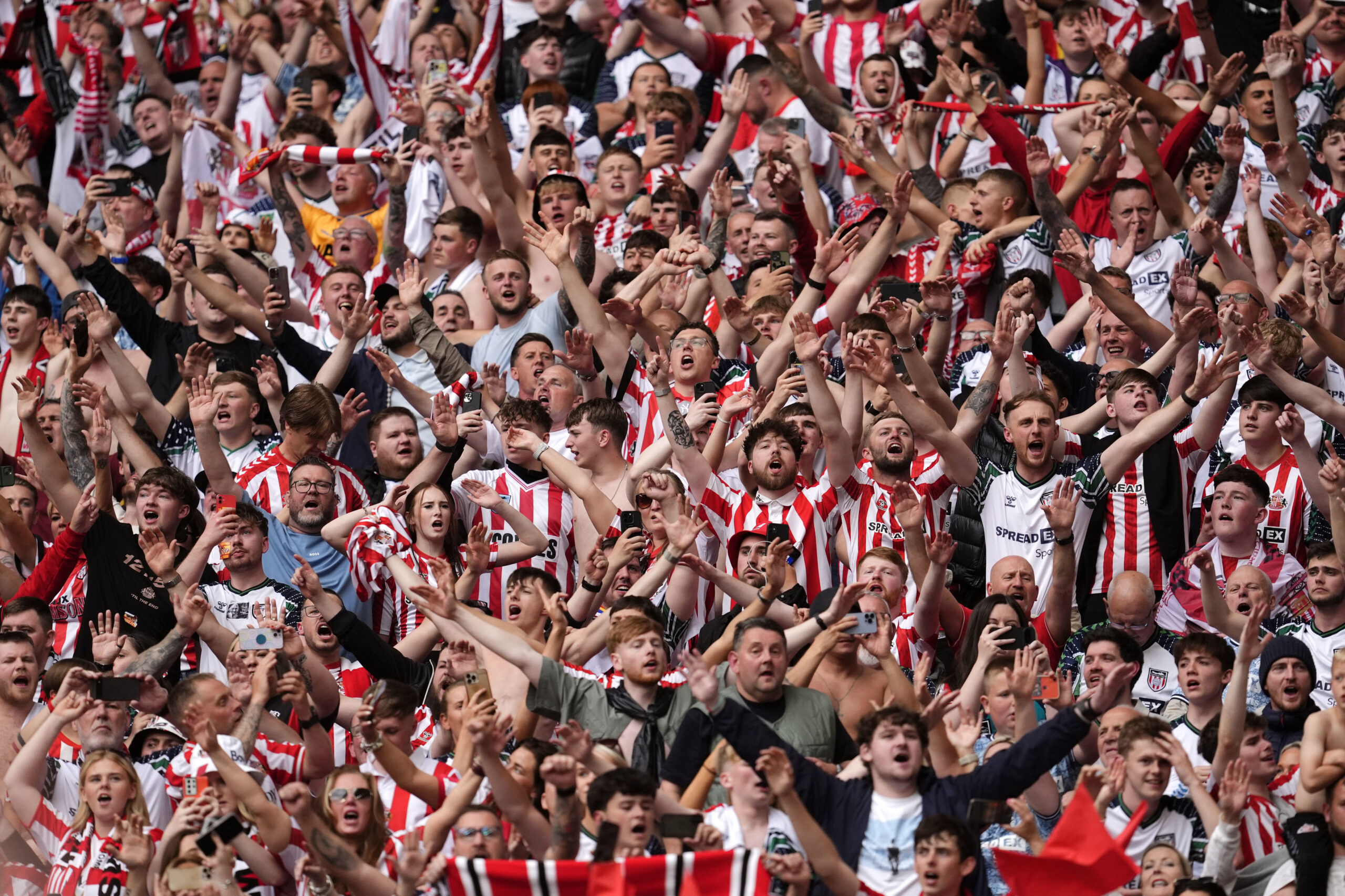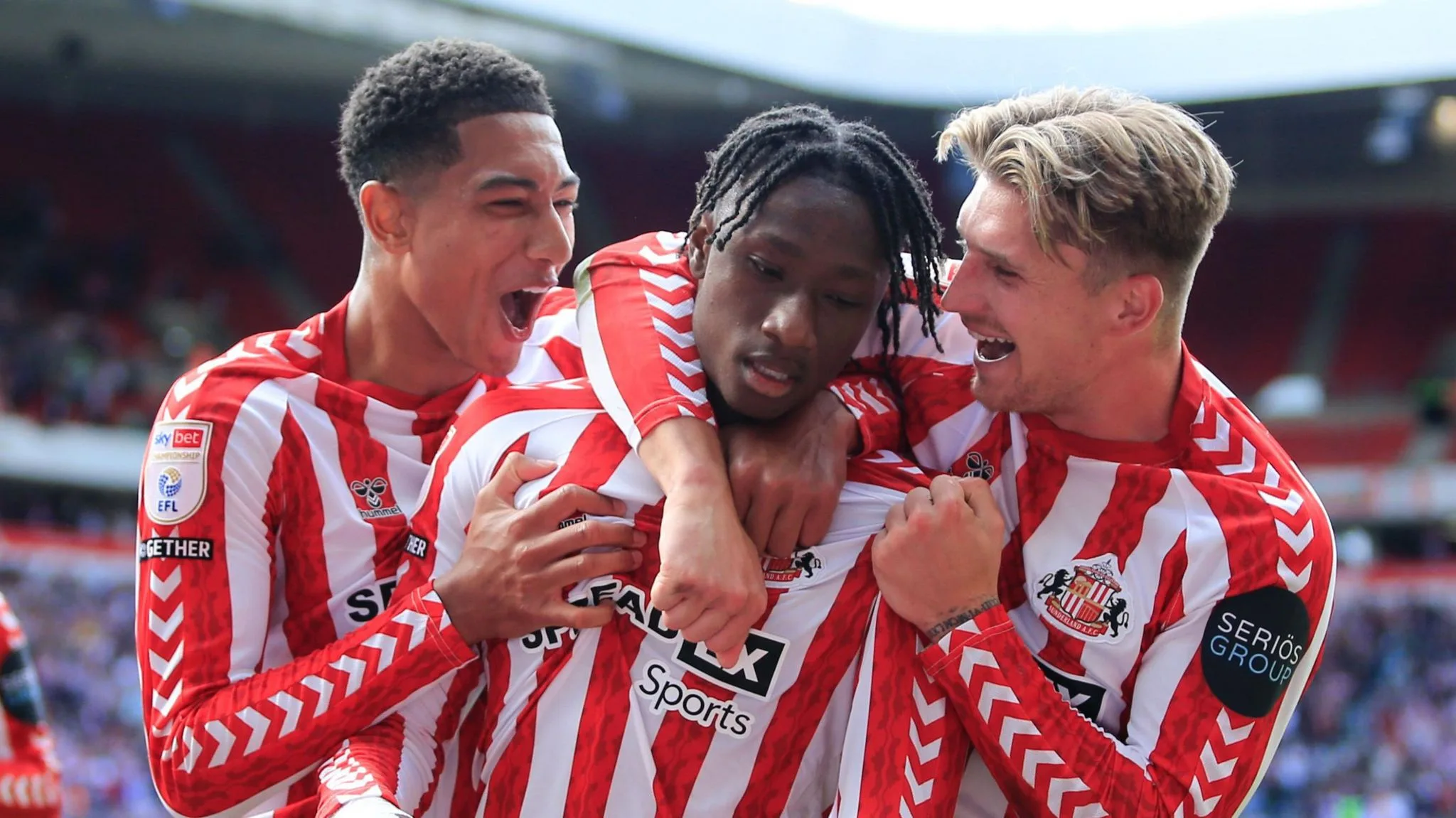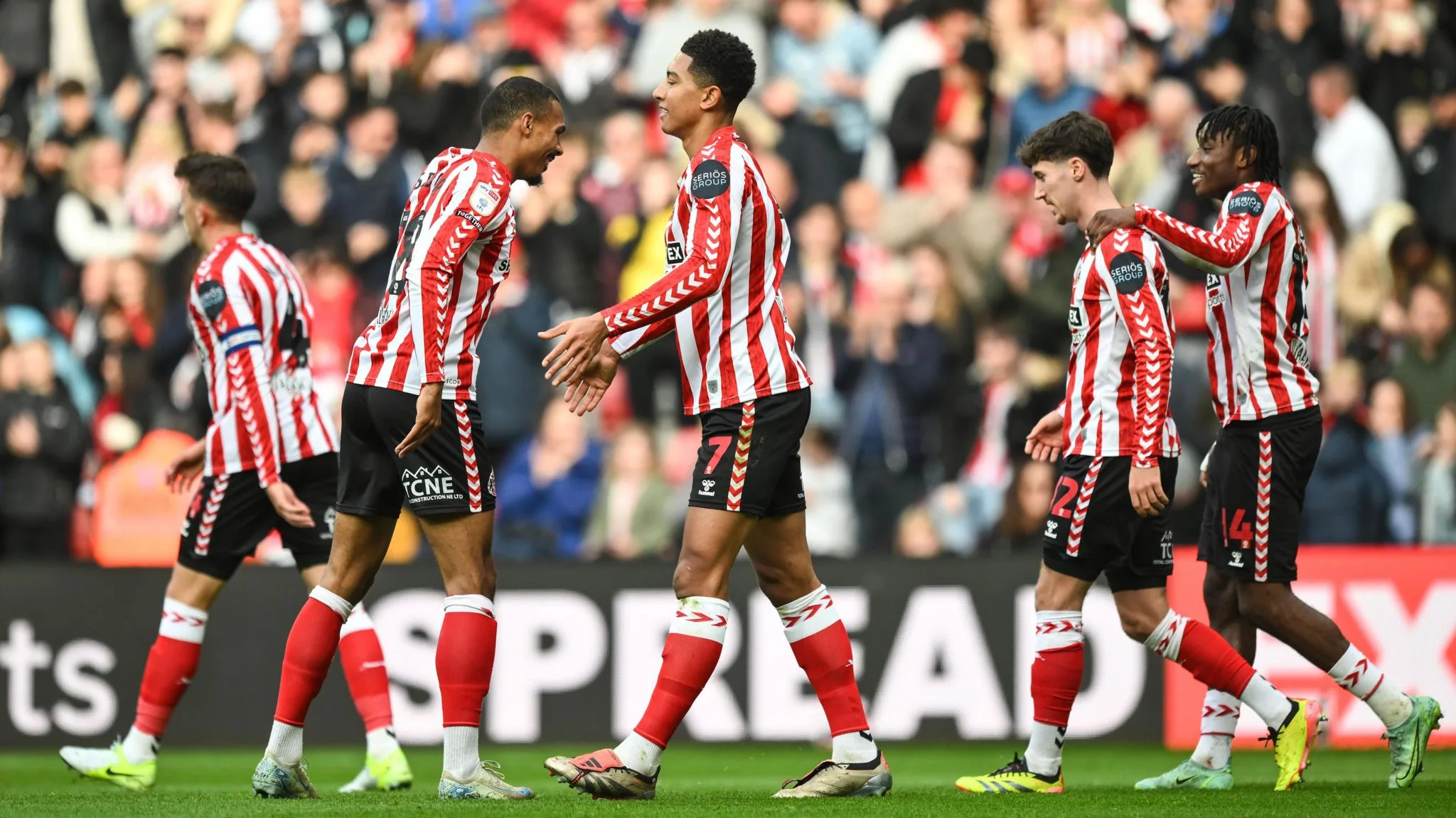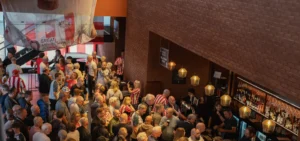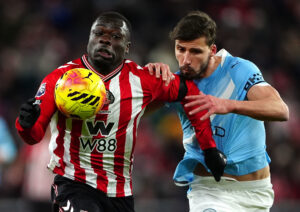Wise Men Say contributor Michael Lough pens a personal piece on what Sunderland means to him – and why their current slump has further consequences than just slipping down the league table
From an early age Sunderland has been a huge part of my life. In fact I would go as far to say as it’s all I’ve known.
When I refer to Sunderland, I mean both the city and the football club. In my mind there is little separation between the two.
As a child who grew up around 25 miles away from Sunderland in rural County Durham, going there equalled happiness. When I went there, I was either going to the match, enjoying a day at the beach or visiting family.
My family on both sides have been Sunderland supporters going back three generations and my mam’s side of the family are all Wearside natives. I was raised on tales of old-fashioned Sunderland town by my Grandma and of SAFC from my Granddad.

I was told stories of Len Shackleton, Charlie Hurley, the Fulwell End surge and what going to the match used to be like in the 50/60’s compared to now. My gran was never a huge football fan but as a proud Hendon girl she would always eagerly ask, ‘how did the lads get on?’ when my granddad returned from the match or later in life, finished listening to the match on the radio. Depending on his response she would either go, ‘Yipiee’ or ‘Ah, hard lines! There’s always next week.’
Football may not have played a huge part in her life, but she was typical of so many people across Wearside in that the football club was a source of civic pride and made up part of their identity.
Equally, my mother is a big Sunderland supporter and took me to a lot of games when I was a kid and has always gone to the matches where possible, but she would be the first to admit that she rarely chooses to sit down and watch a neutral game and has been known to enquire, ‘what shite’ me and my dad are watching when we’ve got Barca vs Real Madrid on the TV.
Again though, as someone who was born and bred in Sunderland, she has always been a big SAFC fan and is as passionate about the team and the area as me and my dad are.
Therefore, I was shocked when I started University in 2013 at just how common the concept of ‘choosing’ a football team was. During freshers’ week I remember having a beer with one of the lads on my course and him being in awe of how much Sunderland AFC meant to the community.
‘Everywhere you look there’s something to do with the football team, whether it’s the bars and barbers shops all having Sunderland stuff everywhere, whether it’s taxi drivers wanting to talk about nothing but SAFC or people of all ages wearing SAFC hats, or jackets regardless of how the team is doing. I’ve seen nothing like it.’
He went on to tell me that in most places throughout the country who don’t have a top six team on their doorstep, a sizeable amount of people either didn’t follow the progress of their local team unless they had a good cup run or even some match going supporters have a ‘Premier League club’ as well as their hometown side.
This naturally made me feel proud, but at the same time it made me stop and consider how much I took being a one club city with fanatical support for granted.

As stated earlier, due to family influence I can never remember ‘becoming a Sunderland fan’, to put it bluntly, Sunderland has always just been part of me. Even before I became interested in football, I remember going to my grandparents and seeing a framed cartoon of Kevin Phillips, Niall Quinn and Peter Reid. The older I got, the prouder I was of my identity and roots, at school I was proud of my Wearside accent, my origins and the sense of belonging being a Sunderland fan gave me.
This pride has transitioned seamlessly in to my adult life, which is why I am fearful for the club’s future both on and off the field.
Since I was 18 I have lived back in Sunderland but right now it doesn’t feel like the place I know and love.
Immanuel Kant once said that a sense of duty was the ultimate form of goodness, if we are to take that statement at face value then the 20-25,000 hardly souls who still attend matches at the Stadium of Light should all make the New Year’s honours list. Rather than the match being something to look forward to, it now has a sombre feel to it.
In our most recent defeat at Gillingham, over 1,300 fans made the journey to Kent to see their side labour to another embarrassing result. Some of the supporters were southern based but a good number made the journey from the north east with little hope of a positive result.
On the supporters’ branch bus I travelled on, the mood was very low on the return journey. Not just because we had lost – heaven knows we were all used to that – but after enduring ten years of gruelling relegation battles in the Premier League and an embarrassing Championship capitulation, we thought that we ‘had our club back’ last season.
Fast forward a few months, and we are making the same mistakes as we did in the Premier League and Championship, only now we are at the lowest ebb in the club’s history. Instead of playing for a draw at Old Trafford, we are playing for a draw at Gillingham.
Around a year ago, Netflix dropped the infamous Sunderland ‘Til I Die documentary. Which was supposed to be a cautionary tale of how low a neglected football club could sink. We were supposed to be back in the Championship right now, almost laughing at how bad things used to be. Instead we are witnessing a football club entirely in the image of that 2017-18 season, suffering from an equal amount of neglect.
One positive to come out of the documentary was the community spirit, the fans and the almost unique passion of the area, as things stand, even that appears to be disappearing at an alarming rate.
On the way back from Gillingham the lad who runs the supporters’ bus was questioning whether or not to bother running the branch because it was such a chore to get members to commit to going to away matches. Others on the bus didn’t even last until half time before deciding to sack things off and finding a pub near to where the bus was parked, and the ones who did brave the full 90 minutes were doing a large amount of soul-searching.
Right now we are losing the hardcore supporters, the actions of the owners, the unpopularity of the manager and the lackadaisical approach of the players has combined to be the straw that is breaking the collective back of the fan base.
It is sometimes easy to forget that football is meant to be there to be enjoyed, something to unite friendship groups, families and communities.

From a personal view point, football has always been a form of escape and as someone who has suffered long term mental health struggles, going to the match has been a source of comfort.
Meeting mates for a beer before and after the game, catching up with my dad and going to watch the side we’ve all been brought up to love has often been something to get me through difficult periods in my life.
No matter how bad I’ve felt, match day has always been something I look forward to. Now, it just feels like a chore, the thing I love and has given me so much over the years has become something to add to my misery and disillusionment.
Throughout this article, I am aware that I may have come across as very self-indulgent, however this is not about me.
There are thousands of people all over the region who find life challenging at times, who use football as an escape who are fed up of having their Saturdays spoilt. There are even more people who for this reason have stopped going to the matches and are rapidly losing interest.
When Sunderland AFC win, the whole city wins, local businesses win, pubs win, taxi drivers win, Monday morning at work seems more bearable when we win.
Equally, when Sunderland AFC lose, we all lose. Therefore it is imperative that we find a way to turn this current situation around.
We need this football club to succeed and to bring us hope, once the hardcore supporters lose interest, it has a trickle down effect and one day the partner who isn’t really into football will stop asking ‘how did the lads get on?’ Children will stop supporting Sunderland by default, the emotional attachment that we were all born with will subside and we will all suffer from it.
This sentiment may seem a little bit dramatic, but it is vital that owners and managers stop taking the passion that we all have for granted and give us something to make us believe again.
Michael Lough

